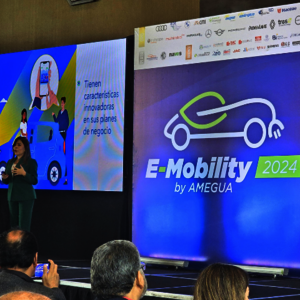New program to strengthen resilience to climate change in the Central American Dry Corridor and the Dominican Republic

SICA, CABEI, FAO and UN Environment Ministers create an alliance to tackle the effects of climate change.
Puntarenas, June 08, 2017. - A new regional program will support the most vulnerable communities in the Central American Dry Corridor and the arid zones of the Dominican Republic to face the effects of and increase their resilience to climate change.
Today, the Central American Bank for Economic Integration (CABEI) provided USD2 million for the program’s formulation under a framework agreement signed with the United Nations Food and Agriculture Organization (FAO).
With regard to the Program’s regional coordination component, the event also included the signing of a CABEI cooperation agreement with the Environment and Development Commission (CCAD) of the Central American Integration System(SICA), which was represented by the Costa Rican Minister of Environment and Energy in his capacity as CCAD Pro Tempore President. The agreement seeks to manage the Program’s strategic direction so it can be presented as a regional proposal to the Green Climate Fund.
The program will promote sustainable knowledge-based agrifood systems, without affecting the provision of ecosystem services on which the communities depend. Its main focus will be to strengthen the capacities of the SICA member countries to fulfill the commitments of the environmental agenda and ensure an adequate territorial-approach to ecosystem and biodiversity management.
CABEI Executive Vice President Attorney Alejandro Rodríguez Zamora stated that, "Climate actions and new investments intended to be implemented through this program will offer integral responses to the current negative natural conditions affecting these territories and the vulnerable communities inhabiting them." He also added that, “Addressing the dry zone involves talking about proposals focused on the integral management of water resources, ecosystems and the formation of human and social capital.”
FAO Coordinator for Mesoamerica, Tito E. Diaz, stressed that climate change exacerbates the vulnerability of families living in the Central American Dry Corridor. Ha added that, "It is indispensable to move from the traditional emergency response strategy to integral and sustainable action in environmental and socio-economic terms in order to address the structural causes of vulnerability, natural resource degradation, inequality, poverty and low diversification of livelihoods."
UN Environment will be a key member of the Program’s technical team. UN Environment Regional Climate Change Coordinator for the Latin American and Caribbean Office, Mr. Gustavo Máñez stated that, "The program will work to recover key ecosystems for adaptation, such as forests that regulate water supply and stabilize soils; it will also implement options that contribute to both local development and climate change mitigation."
Máñez added that the Central American Ministers of Environment and Agriculture have requested that the program identify and integrate productive options in areas that are losing their aptitude for agricultural production.
In addition, the program will enable the design of innovative financial mechanisms to improve the resilience of the livelihoods of thousands of family agricultural producers and strengthen agro-climatic and early warning information systems.
Uniting efforts to combat climate change
The new SICA/CABEI/FAO/UN Environment Program will generate instruments that will help countries to design and implement national programs, contributing, from an environmental standpoint, to strengthening Central American integration.
At a technical level, FAO will lead an interdisciplinary group of experts, including members of CABEI and UN-Environment, to develop the new regional program.
FAO’s Coordinator for Central America highlighted that the effects of climate change on food production can undermine global food and nutritional security achievements. He stated that, “"Implementing an environmental and climate action agenda is essential for reducing food insecurity and poverty in Central America and the world."
In addition, it will support countries to reduce their greenhouse gas emissions and meet international commitments such as the Paris Agreement, the Nationally Predicted and Determined Contributions and the Sustainable Development Goals.
CABEI and FAO Strategic alliance bears first fruits
In June of last year, CABEI and FAO established a technical and financial alliance to contribute to food and nutrition security and sustainable development.
The agreement signed today between CABEI Executive Vice President, Attorney Alejandro Rodriguez Zamora, and the FAO Coordinator for Mesoamerica is the first great fruit of this alliance, which will lay a solid foundation for developing the regional resilience program.
CABEI Vice-President stated that, "We have no doubt that this important technical and financial alliance signed today will bear fruits and enable us to improve food insecurity conditions, mitigate accelerated natural resource degradation and bring wellbeing to these territories."
The agreement signing to support the resilience program was held during the LII Meeting of the Council of Ministers of the SICA Environment and Development Commission (CCAD) in Puntarenas.










